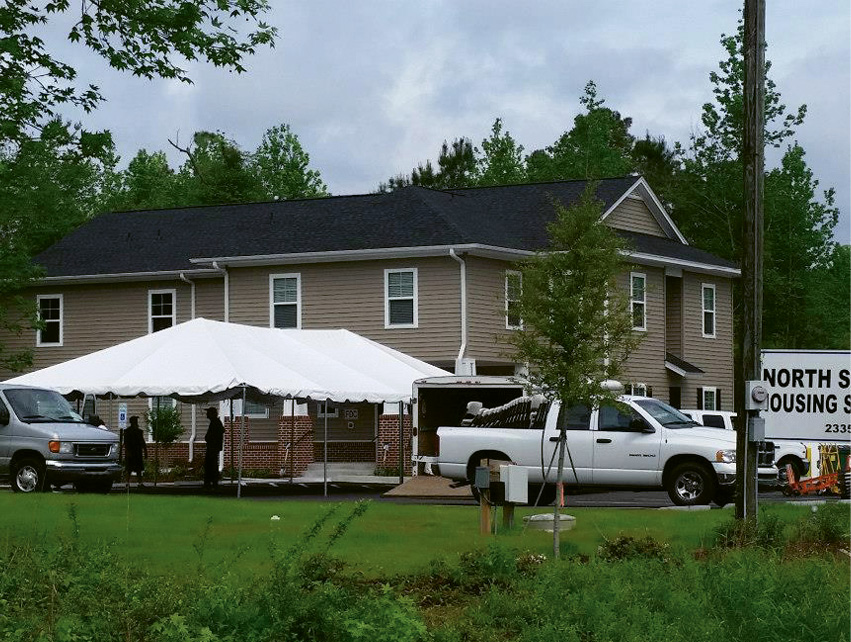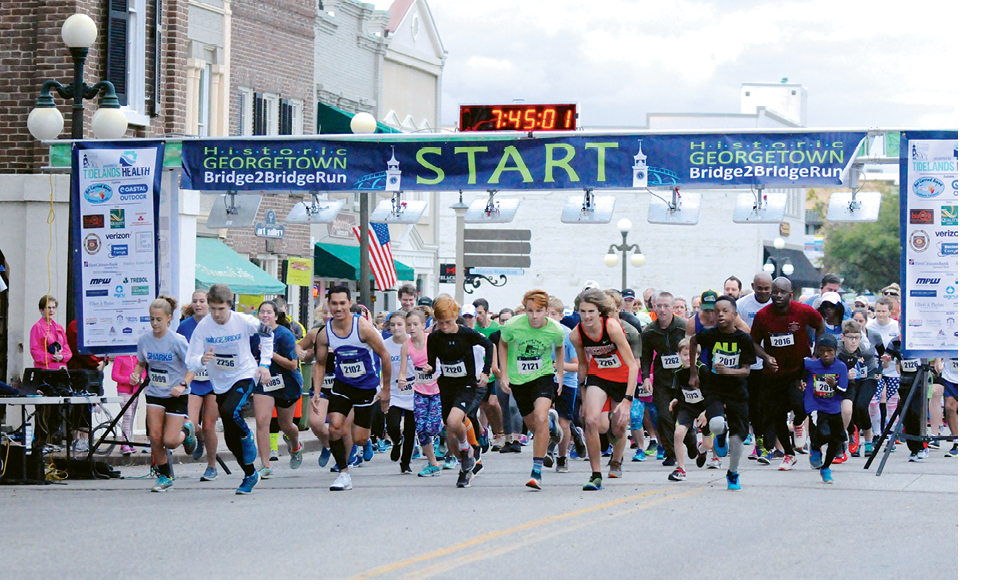These area organizations answer the call when it comes to helping the Grand Strand’s homeless population

New Directions of Horry County
Fighting alcohol and drug addictions, along with emotional and mental disorders, is hard enough for those who have shelter and a support team of friends and family, but for the homeless, even those without serious addictions or disabilities, the challenges can be overwhelming. Around 2010, after a growing number of homeless men, women and children in the greater Myrtle Beach area were found in desperate need of services, it became clear that the problem needed a fresh approach, a new direction.
When the Myrtle Beach City Council met in 2011 to address the issue of homelessness in the area, a call was put out to any and all nonprofit groups that served the homeless community. Some 61 nonprofit groups showed up. A steering committee began strategic planning after finding many services were duplicated and that other services were nonexistent. After an 18-month study done by various nonprofit board members, community leaders and funding sources such as United Way, Chapin Foundation and the Waccamaw Community Foundation, in 2013 New Directions was founded and Kathy Jenkins was hired as Executive Director.

“We looked at what should be done first,” said Jenkins. “We decided that placing the existing Myrtle Beach [area] shelters under one management team was the first, most important task.”
Over the next four years New Directions has had a significant impact on the community, while remaining efficient and fiscally responsible. “We’ve staffed the shelters with case managers, partnered with other organizations who provide services to the homeless and work every day to help people get a fresh start,” said Jenkins. “We help them find housing, address their health issues and hopefully move them toward financial stability.”
An important part of Jenkins’ role is as grant writer, as well as maximizing funds to run the organization efficiently. “Our fiscal year ended in June 2017. It was our fourth full year of operation. We added our fourth shelter, a family shelter for single moms. It has four, three-bedroom, two-bathroom apartments and is designed for those single moms and their children who need a little more time to get on their feet.”
“We provide food and shelter to more than 1,200 men, women and children each year. We operate four shelters 24 hours per day, seven days a week, 365 days per year—we never close. We have 11 full-time employees, resident managers and 200-plus volunteers, interns from Coastal Carolina University and Horry Georgetown Technical College. We have an on-site medical facility run by Little River Medical Center, and we just launched an opioid initiative to address the growing epidemic. And we do it all for less than $800,000 per year.”
GET INVOLVED
New Directions of Horry County
Kathy Jenkins, Executive Director
(843) 945-4902
helpnewdirections.org Facebook.com/myndhc
North Strand Housing Shelter
Around nine years ago, husband and wife Dana and Michael Bolch kept hearing about the number of homeless men, women and children in the North Myrtle Beach area, but they didn’t believe it. “We just didn’t see them,” said Dana Bolch. “We’d drive right by them. But once we started looking for them, sure enough we started to see them. We’d find women and their children sleeping in their cars in the Walmart parking lot, and saw the men, many of them veterans, with no housing, and so we started planning to open a shelter. We didn’t know a thing, but we learned and asked our [area] churches for help and we figured it out.”

The North Strand Housing Shelter, comprised of two buildings in the Longs area, can serve up to 40 individuals. “We’ve been operating for eight years now,” said Bolch. “We especially cater to veterans and homeless single mothers and their children, but we’re open to anyone in need.”
The shelter, a nonprofit organization, has a strict no drugs/weapons/alcohol policy, which Bolch says eliminates a certain sector of the homeless population who are unwilling or unable to comply with the rules. “When you come to the shelter, you have a week to relax, and then if you’re capable of working you go job hunting. Our van drives them into town to help them look for work. You have 30 days. If they get a job we’ll give them a little longer to stay and help them find a place to live, but we’re not a hotel. If they’re able to work but will not work, we ask them to leave. It’s kind of sad. We’re doing the best we can do.”
The shelter holds two fundraisers each year, including a ladies luncheon the last Saturday of each January at The Dunes Club in Myrtle Beach, as well as a golf tournament every May. An anonymous benefactor has offered to match funds to help the shelter pay off its mortgage. “We’re mostly run by volunteers, but we have a limited paid staff. We have a house director, two on-site resident staff and a night watchman,” said Bolch. “On Tuesdays and Thursdays we offer life skills classes, and a counselor comes in and leads group therapy and individual counseling.”
“Things happen in people’s lives that sets them on a different course, which can lead to problems, including homelessness,” said Bolch. “We do what we can to help.”
GET INVOLVED
North Strand Housing Shelter
Longs, Dana Bolch, Executive Director; Michael Bolch, CEO
(843) 756-9488
http://www.northstrandhousingshelter.org/
Friendship Place, Inc. Georgetown
Founded in 2000, Friendship Place offers a six-day-per-week lunch program, emergency shelter, job training, medical clinic shuttles and transitional housing within a non-denominational Christian outreach.
Like many nonprofits, Friendship Place began humbly, when a handful of concerned, caring individuals saw a need and decided to try to achieve positive results. In this case a small group of Georgetown-area citizens and church members gathered at St. Cyprian’s Catholic Church to discuss the unmet needs of the hungry and homeless living in the Georgetown area. St. Cyprian’s had already been providing one hot meal each week, January through March, but this newly formed group wanted to expand this service first to two days, then three, and now to lunch six days per week, as well as an evening meal each Wednesday night year-round. Volunteers and visiting professionals offer health and community classes for the clients who visit.

After a prayer for the meal, volunteers act as waitstaff, delivering plates of food and drink as if in a restaurant. There are no buffet lines. This approach, they say, personalizes the meal and the experience. Well-known chefs and restaurateurs volunteer their time and plan healthy meals for the program.
After emergency shelter was offered first to one man who’d been living in his car near the church, the organization met the next need in Georgetown: helping to house the homeless. Partnering with local motels, Friendship Place now offers temporary housing to between 50–80 clients annually who pass background checks and apply for assistance, while they work to secure something more permanent.
Expanded from a few extra hot meals each week to a year-round free meal program, job training, medical transportation, emergency housing and other services, Friendship Place seems to be answering the call to serve. They welcome volunteers, guests for lunch and donations.
GET INVOLVED
Friendship Place, Inc. Georgetown
Anne Hartis, President
(843) 545-1115
http://friendshipplaceinc.org/
Photographs courtesy of New Directions of Horry County (2), North Strand Housing center and by Lauar Hutto